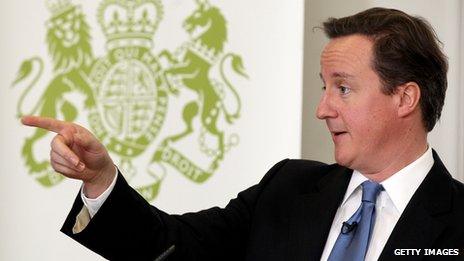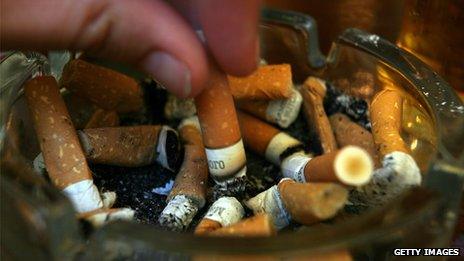Why wellbeing is not a silly season filler
- Published
- comments
We are a bit happier and slightly less anxious, according to the latest wellbeing data from the Office for National Statistics. So what?
Well, potentially, so quite a lot.
A few weeks ago the government published its first thoughts on the Measuring National Well-being programme launched in 2010 by David Cameron. "Our challenge in government," ministers said, "is to begin to use the emerging indicators to better account for wellbeing in policy development."
The report reveals how Whitehall is "creating a pipeline of evidence to help relate wellbeing to specific policy areas such as crime, education, work, environment, and lifestyle choices".
That, according to the prime minister, is the real point behind these statistics. You may recall his announcement that the UK "will start measuring our progress as a country, not just by how our economy is growing, but by how our lives are improving; not just by our standard of living, but by our quality of life."

David Cameron launched the Measuring National Well-being programme in 2010
A Social Impact Task Force made up of senior analysts has been "working to make use of the wellbeing data" across government. Most departments are now "engaged in wellbeing research" - conducting their own surveys to explore the impact of policies in areas such as housing, crime, adult learning, sport, culture and health.
The introduction of welfare reform, parenting classes and the troubled families interventions will all be assessed against their effect on the personal wellbeing of those involved.
The question, of course, is whether politicians will ever be convinced that their pet project or even their ideological beliefs should be amended because of their impact on wellbeing. But the data will provide lobbyists with ammunition.
For those who question the validity of wellbeing measures, the government says "seemingly soft subjective indicators can ultimately present themselves in sharp objective ways".
High levels of personal wellbeing are associated with an increase in life expectancy of between four and 10 years. In contrast, unhappiness due to feelings of loneliness have physiological health consequences that equate, for example, to the impact of levels of smoking.

Unhappiness can be as damaging to health as smoking
It is really too early to draw any firm conclusions from the wellbeing data - the measures are still in development and the statistics are regarded as experimental. But the foundations are now in place for quality of life to become a key indicator in the building where it really matters, HM Treasury.
A treasury discussion paper explains to ministers how the can attach monetary value to the social impacts of policies. So, for instance, the Department for Work and Pensions (DWP) and the Cabinet Office have recently begun putting a financial value on volunteering and unpaid care. The Health and Safety Executive is looking at valuing occupational injuries and ill health.
So the figures on national wellbeing are more than a silly season story when real politics is in short supply. If the prime minister gets his way, this is what real politics looks like.